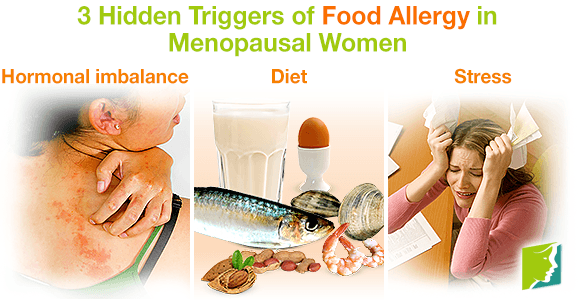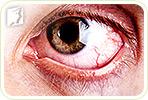The onset of an allergy during middle age is becoming more and more common. Many people who previously did not suffer allergies to certain foods can develop allergic reactions that range from mild to severe. This can create a serious health risk if the developed allergies.
There are various possible reasons for developing a food allergy later in life. One reason may be that menopause triggers allergies in some women. Continue reading to learn about three hidden triggers of food allergies in menopausal women.
Hormonal Imbalance
Allergic reactions happen because the immune system reacts to a substance that is harmless to most people. The immune system is regulated in part by estrogen and other hormones. Although it is not very well understood, and more research needs to be done on the topic, there may be a connection between menopause and developing allergies as an adult.
Diet
The biggest food allergens are shellfish, milk, peanuts, fish, eggs, soy, gluten, and tree nuts such as Brazil nuts and almonds. Identifying the problem foods and avoiding them is the best way to prevent an allergic reaction.
However, it is not always that simple, as many of the biggest food triggers are found in very small quantities in many foods and can be hard to single out. Even if you are not eating the food you are allergic to, you may still suffer a reaction if trace amounts of that food trigger an allergic reaction. This means it is important to talk to restaurant staff, read product labels, and talk to friends and family before they prepare you food.
It is important to talk with your doctor before you cut certain foods and food groups from your diet. Your doctor will help you effectively treat your allergies and follow a diet that ensures you get the vitamins and minerals that you need.
Stress
Stress can cause the body to release a range of hormones and other compounds, including histamine. As histamine is the substance that causes the runny nose, rashes, sneezing, and other symptoms of an allergic reaction, lowering stress levels may in turn reduce the severity of food allergies. Activities such as listening to your favorite music, exercising, or reading can reduce stress and decrease the likelihood of your body producing histamine.
Treatments
Having to deal with new found food allergies can be difficult. For further information on how to handle this symptom, click here.
Sources
- Chen, W., Mempel, M., Schober, W., Behrendt, H. & Ring, J. (2008). Gender difference, sex hormones, and immediate type hypersensitivity reactions. Allergy, 63(11), 1418-1427. doi: 10.1111/j.1398-9995.2008.01880.x.
- National Health Service. (2012). Food allergy - causes. Retrieved October 25, 2013, from http://www.nhs.uk/Conditions/food-allergy/Pages/Causes.aspx
- National Health Service UK. (2014). Food allergy and intolerance myth buster. Retrieved August 10, 2015, from http://www.nhs.uk/Tools/Documents




